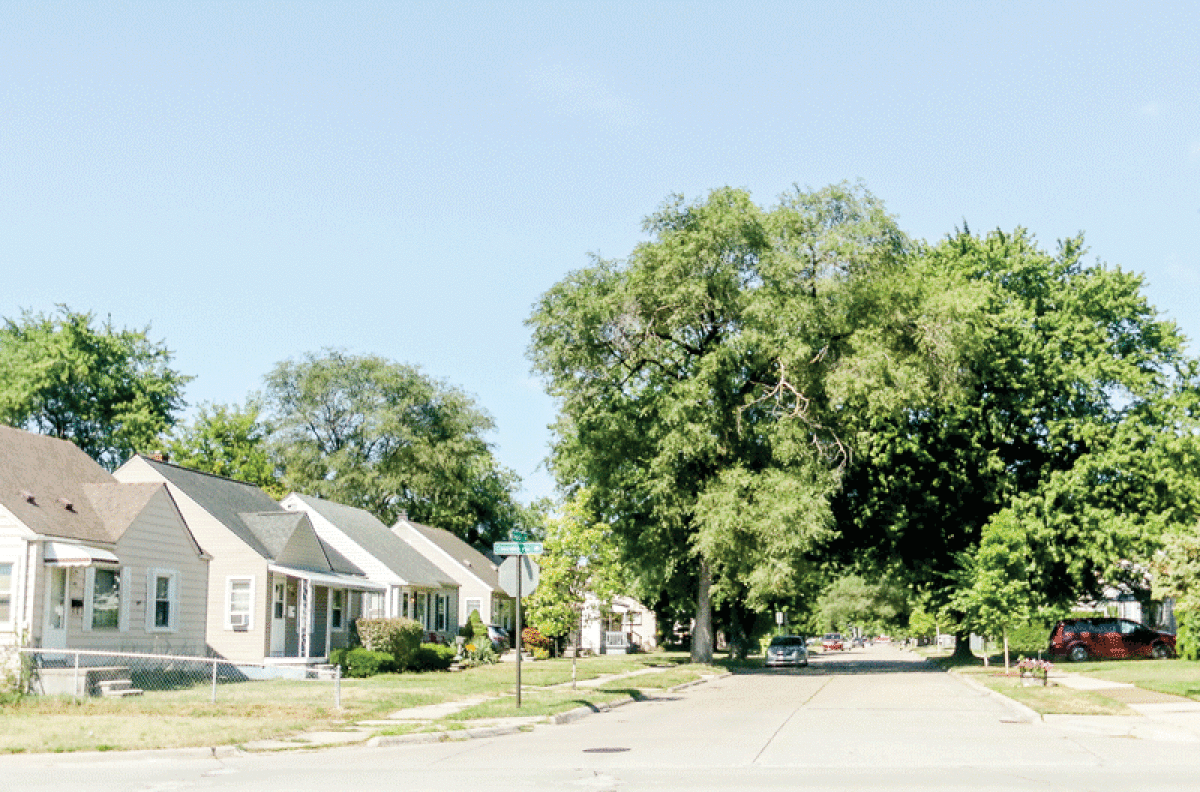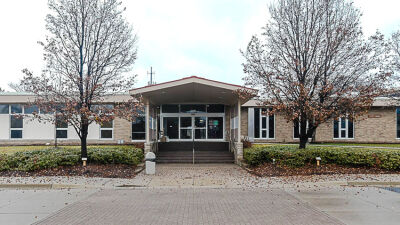MADISON HEIGHTS — A program currently being developed by the city of Madison Heights will provide eligible homeowners with affordable household repairs starting next summer, once the federal government approves funds for it.
The city has budgeted for staff to work on creating “neighborhood improvement” areas that will help maximize opportunities for home repairs, code enforcement education and public amenities that will be funded through various means, including an allocation of $3,000 from the general fund, $26,000 through a Community Development Block Grant, $25,000 through the Michigan State Housing Development Authority (MSHDA), and private contributions totaling $27,000.
Melissa Marsh, the city manager, saw an opportunity to expand it even further. In April 2022, the city partnered with Habitat for Humanity of Oakland County to develop the Madison Heights Neighborhood Renovation Fund. Together, the city and Habitat applied for a federal grant through the FY 2023 Community Projects Fund, which will bring an additional $1 million of funding to the designated area of Madison Heights south of Lincoln Avenue and north of Interstate 696, located between Dequindre Road and Stephenson Highway, as approved by the MSHDA.
The program will be multifaceted, helping Madison Heights homeowners to repair and replace furnaces, hot water heaters, kitchens, bathrooms, roofs, siding, decks, porches, and more.
“We have received positive responses with our grant approved in the upcoming federal appropriations bill,” Marsh said in an email interview. “While this is excellent news, and a significant step in approval, we must now wait on approval by the Appropriation Committee, passed by the House and the Senate, and then signed by the president.”
She said that she expects all of the necessary components to be in place for the program to launch in the summer of 2023. As for the area that will be eligible, in the southern end of the city, Marsh noted there is a high concentration of low-income housing there where many individuals cannot easily afford home repairs.
“Homes in the designated area were constructed during the 1950s and have deteriorated throughout the years due to normal wear and tear,” Marsh said. “This project will address home repair issues in this section of the city, assisting homeowners who would not otherwise perform the home repairs on their own. The program will be open to anyone living in this area, with preferences to elderly and disabled homeowners.”
The homes in the designated zone includes 14 condos, 34 apartments, 116 mobile homes and nearly 1,600 residential homes. Most of the residential dwellings are single-family ranch-style homes, averaging between 60-70 years in age.
Habitat will manage the fund on behalf of the city, with staff dedicated to homeowner-occupied home restoration and financial counseling. They will not only review the application with each owner, but also cross-reference other programs that may offer financial assistance. Eligible residents can apply for those during the process, as well, with Habitat submitting the application on their behalf.
“Although (Habitat) are professionals in construction with thorough knowledge of construction management and compliance, they are also a compassionate team of individuals who are dedicated to the people who enter into partnership through their programs,” Marsh said. “Offering affordable repairs by qualified professional contractors keeps people in their homes. Habitat assures the quality of each project by inspecting the work throughout the term of construction, as well as a follow-up ‘warranty inspection’ between 6-12 months after the completion of the work.”
The program, as currently proposed, will see Habitat providing residents up to $25,000 for home improvements at 0% interest and payment options of up to seven years. The typical repair project cost for 2022 is $25,000. Households with an AMI (area median income) at 0-50% would receive a grant with no payback required. Households with an AMI of 50-80% would pay back 45%, and households with an income of 80% would pay back 90%, interest-free.
And the repairs for eligible homeowners are just one part of what the city plans to undertake with its neighborhood improvement areas. Staff are also considering educational events, such as a public block party in the designated area, which would help inform residents about the program, and also raise awareness for issues such as grass cutting and rodent control.
“This program will create a healthier community for all of Madison Heights,” Marsh said. “It will not only assist in preventing the displacement of individuals who may not be able to maintain their homes in livable condition, but it will also assist homeowners in making necessary repairs to maintain a safe and healthy living environment. The project can bring properties up to code, upgrade for energy efficiency, and increase curb appeal.”
In a series of emails, Mayor Roslyn Grafstein and City Councilman Mark Bliss shared their thoughts on the program.
“Being able to offer this program at all is a huge win, and the type of innovative thinking that makes me proud to be a part of our City Council,” Bliss said. “So many people will be positively impacted by this program. It’s my hope, and our plan, to continue this to more neighborhoods in the city in the coming years.”
Grafstein added, “The funding is intended to help our struggling homeowners with needed repairs and upgrades. These upgrades will in turn help stabilize and improve the community. By sensibly investing this money now in small improvements for everyday living, we will in the longer term see increased home prices, more pride in ownership, and more of a sense of community.”
 Publication select ▼
Publication select ▼



























